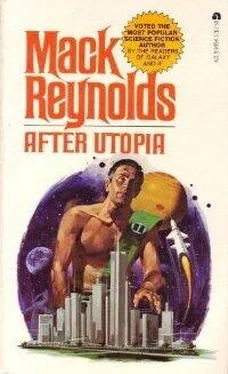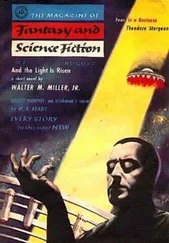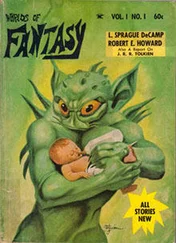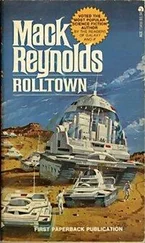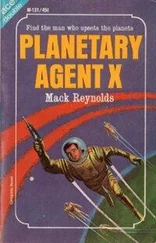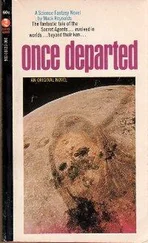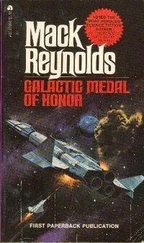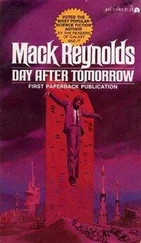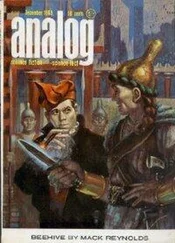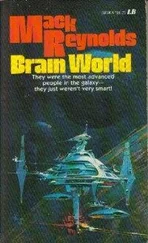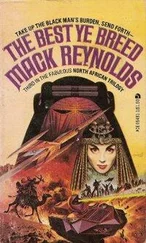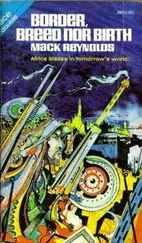Cogswell thought about it after taking a deep breath.
Betty came to her feet and cleared up the breakfast things, put them on a tray and headed for the kitchen.
Apropos of nothing, Tracy muttered, “So even in Utopia, a woman’s work is never done.”
The academician frowned, not getting it at all. “How do you mean?”
Tracy smiled at him. “Your daughter has gone to wash the dishes.”
Edmonds laughed softly.
Tracy said to him, “What’s so damn funny? In my time women were beginning to revolt against such things as kitchen drudgery.”
Walter Stein said, “Tracy Cogswell, we don’t wash dishes anymore.”
Tracy scowled at him. “What do you do with them, just throw them away?”
“Yes. Or, at least, we throw them into the disposal unit. They are then recycled. The manner in which you utilized dishes and utensils, in your day, is now considered unsanitary. It was somewhat analogous to the way you washed and cleaned clothing.”
“Oh, come on now, for Christ’s sake. Are you suggesting that these days when a shirt or dress gets dirty you throw it away?” Tracy scoffed.
Stein nodded. “Yes, or any other article of clothing. In your day you washed it, ironed it, replaced any lost buttons, patched up any tears or holes, and stored it away for future use, taking up quite a bit of room in drawers or in a closet. We find that we save labor by throwing a garment away.”
Tracy Cogswell was indignant. “That’s one hell of a waste!”
The other shook his head before saying, “No, it isn’t. The material is recycled and a brand new garment made available. Each morning we dial fresh clothing from the local distribution center.”
Tracy gave it up. He said, “All right. The hell with this. Tell me, how come you three people speak English if it’s no longer in common use?”
“We studied it so that we could communicate with you, Tracy. We have been preparing for your coming for a long time.”
“This story isn’t holding up too well,” Tracy said. “You say that you want my know-how to lead an underground revolt against the present socioeconomic system. How in the hell could I, if I don’t even speak the language?”
Betty had returned and now resumed her chair, smiling at Tracy in what he assumed to be reassurance.
Jo Edmonds said, in his usual lazy tone, “We planned on teaching you Interlingua.”
Tracy grunted before saying, “It’d take a coon’s age for me to pick up a new language to the point I could communicate in such a field as socioeconomics, be able to give speeches, write pamphlets and so forth. I’m not a kid any longer. Fifteen or twenty years ago, I used to be a whiz at it. I could pick up a smattering of a language in a month, and be really fluent in a year.”
“Less than a week,” Edmonds said mildly.
“A week? You mean you figure on teaching me a language that I’ve never even heard of before in a week’s time? Don’t be ridiculous.”
The academician cleared his throat and said, “Tracy, there have been changes in education since you went into, ah, hibernation.”
Tracy snorted at that. He said, “There sure as hell would have to be.”
The other sighed and said, “Let me give you a bit of background. Do you remember a certain Dr. Robert Oppenheimer in your times?”
“Sure,” Tracy said. “He was the one who headed the nuclear fission team that produced the A-bomb.”
“Yes. He was a very competent physicist.”
Tracy accepted that but said, “And a damn fool when it came to political economy.”
“Perhaps,” the other agreed. “However, what I was getting at was that in 1955, not long before we took over your body, he made the statement that human knowledge was doubling every eight years. Let us suppose that he made his calculation beginning the year 1945 using the old calendar.”
Tracy scowled. “What do you mean, the old calendar? I think you mentioned that before. What kind of calendar do you use now?”
Betty took up the ball. She said, “We changed at the beginning of the year 2000. You see, the old calendar was inaccurate. Even the Mayans had devised one more accurate than the one Europeans had utilized since the Middle Ages. Besides, a dozen or more different calendars were being used. The Moslems, for instance, based theirs on the moon, rather than the sun. Every year they lost a day or two. The Chinese utilized still a different system. Obviously, all this was pure nonsense when a world government took over. I’ll explain it all to you some other time. It is now the year 45 New Calendar.”
The academician took over again, saying, “At any rate, a century has passed since 1945. A century which started off with human knowledge doubling every eight years.”
“Jesus Christ,” Tracy said, as some of the ramifications came through.
The other nodded. “Yes, had the pace continued, we would now have approximately eight thousand times as much knowledge as the race possessed a century ago.”
“But it hasn’t continued?” Tracy’s voice was puzzled.
Edmonds dropped his jade piece into a pocket and said, “That’s what we’ve been telling you, Cogswell. The race has turned to mush. Practically nobody gives a shit any more, to use the picturesque old-time idiom.”
Tracy turned back to the older man. He scowled and said, “Well… what’s all this got to do with my learning Interlingua in less than a week. Hell, I haven’t been in a school for twenty years.” He snorted in sour amusement when he realized all over again where and when he was. “I take that back. A hundred and twenty years.”
Betty said softly, “Uh, Tracy, you see we don’t have schools any more.”
He couldn’t think of anything to say to that. He simply stared at her in disbelief.
Her father said hurriedly, “Not in the old sense of the word, Tracy. That is, school rooms and all. You see, we’ve gone beyond them.”
Tracy was flabbergasted. He said, “How in the hell can you go beyond schools? How do the kids learn to read and write? We’ve had schools since way back in Egyptian times.”
The old man twisted his face as though trying to put words together that would give clarity. He said, “I think the first person to state the problem was a writer of your period named Arthur C. Clarke. He, himself, had possibly one of the most universal brains of the time, but he saw the coming problem. He pointed out that already twenty years of school were insufficient and that civilization would not be able to continue without some form of what he called a ‘mechanical educator’ which would be able to impress on the brain in a matter of a few minutes knowledge and skills which might ordinarily take a lifetime to acquire. Otherwise, he said, we could get to the point where we would die of old age before having learned to live, and the entire culture would collapse owing to its incomprehensive complexity.”
“Holy smokes,” Tracy blurted. “You mean that you’ve got such a machine?”
The academician shook his head. He said, “Not exactly. We can’t do it in a matter of minutes, but utilizing our autoteachers and certain chemical stimulants, we can most certainly teach you Interligua in less than a week.”
Tracy was amazed. “But, good God, with a thing like… why, you mean that I could study some subject like, say, physics and in a few weeks know everything there was to know about it?”
Jo Edmonds said in the mild voice that was his wont, “Are you particularly interested in physics, old chap?”
Tracy looked at him. The other had his piece of jade out again. “Well, no,” he said.
“Neither am I. Why clutter your head up with it? I’m not interested in cooking, either, beyond the eating of it. Why in the world should I cram a Cordon Bleu chef’s know-how into my poor skull?”
Читать дальше
